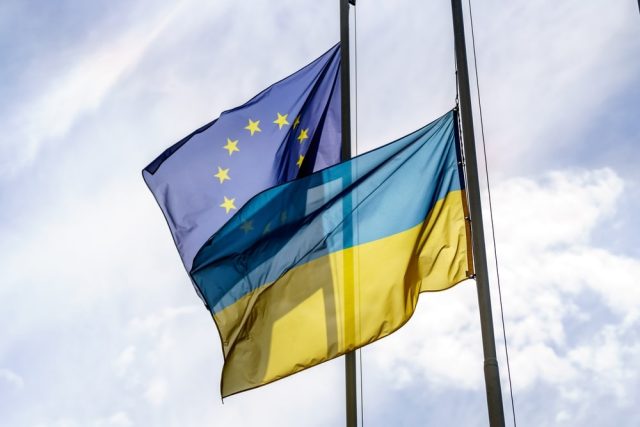
The process of Ukraine’s accession into the European Union, officially launched in 2022 together with that of Moldova, represents one of the most significant projects of European integration, especially if also read in response to the Russian invasion. However, Kiev’s road to Brussels is currently blocked by the veto of Hungary, led by Viktor Orbán, who would seem to oppose a political resistance based more on internal and geopolitical reasons than on objective criteria. The Hungarian position, openly contested by the European Commission, has led to an impasse that risks compromising the credibility of the entire enlargement process, in a delicate juncture in the life and history of the Union.
FOR THE EUROPEAN COMMISSION IT IS A MERIT-BASED PROCESS
The European Commission has clarified that there are no “objective reasons” to prevent the opening of the first negotiating cluster with Ukraine – called “Fundamentals” – which includes chapters on democracy, the rule of law, human rights and public procurement. The Commission spokesperson stressed that Ukraine is carrying out significant reforms, especially considering that it is operating in the most difficult circumstances imaginable, thus confirming that it is proceeding with an approach based on merit and respect for the Copenhagen criteria. This appreciation was also reiterated by President Ursula von der Leyen who, praising Ukraine’s commitment to reform, made it clear that now it is the European Union’s turn to achieve good results in this regard. This appeal, however, has not translated into a concrete solution to the stalemate caused by the Hungarian veto.
HUNGARY’S VETO BETWEEN POLITICAL MOTIVATIONS AND NATIONAL DYNAMICS
Hungary’s refusal to open negotiations with Kiev is justified by Prime Minister Viktor Orbán with reference to a non-binding national consultation, in which 95% of participants declared themselves against Ukrainian accession. The turnout was significantly lower than in the 2022 parliamentary elections, but Orbán nevertheless claimed a strong mandate from his citizens to block Ukraine’s accession process to the Union. One of the main criticisms raised by Budapest concerns the alleged violation of the rights of the Hungarian minority in Ukraine, particularly in the Transcarpathian region. Despite Kiev’s efforts to approve an action plan aimed at strengthening the protection of minorities, bilateral talks between the two countries broke down after Ukraine accused Hungary of espionage activities. This rift has deepened mutual distrust and provided Orbán with an apparent reason to veto Ukraine’s accession to the Union.
EUROPEAN REACTIONS AND UKRAINIAN FRUSTRATION
The Hungarian position has been met lukewarmly by both European officials and the Ukrainian leadership. At the last European summit, President Volodymyr Zelensky made an impassioned appeal for a clear political message, stressing that further delays could undermine global confidence in Europe’s commitment. Zelensky said that the opening of negotiations would already be a political decision that defines Ukraine’s future integration with Europe. Despite the formal support of many of the European chancelleries, the Hungarian veto remains an insurmountable obstacle, since any decision on enlargement requires unanimity of the 27 member states.
THE DECOUPLING HYPOTHESIS: RISKS AND OPPORTUNITIES
Faced with the persistent impasse, diplomats in Brussels are considering separating Ukraine’s and Moldova’s accession paths, despite the two countries having applied simultaneously and been declared candidates at the same time. Orbán has not raised any objections against Moldova, making it possible for the latter to advance unilaterally. However, this option presents significant risks: it could send the message to the Ukrainian people that the EU is not keeping its promises, undermining the perception of European credibility at a critical moment. The Commission has stated that it does not intend to call for decoupling, but has deferred the final decision to the Member States, maintaining the objective of supporting both countries in the process of preparing for accession.
BETWEEN MERIT AND POLITICS, UKRAINE’S FUTURE IN THE BALANCE
The Ukrainian case is, therefore, a real test for the European Union. On the one hand, it highlights Kiev’s commitment to reform and its determination to integrate into the European project; on the other, it highlights the structural limits of an EU that requires unanimity for the most strategic decisions, thus exposing itself to the risk of paralysis. The question of Ukraine’s accession is much more than a technical procedure: it is a test of coherence, solidarity and political will. Its resolution will define not only Ukraine’s European destiny, but also the Union’s ability to speak with one voice in an increasingly complex and conflictual geopolitical context.



 Subscribe
Subscribe